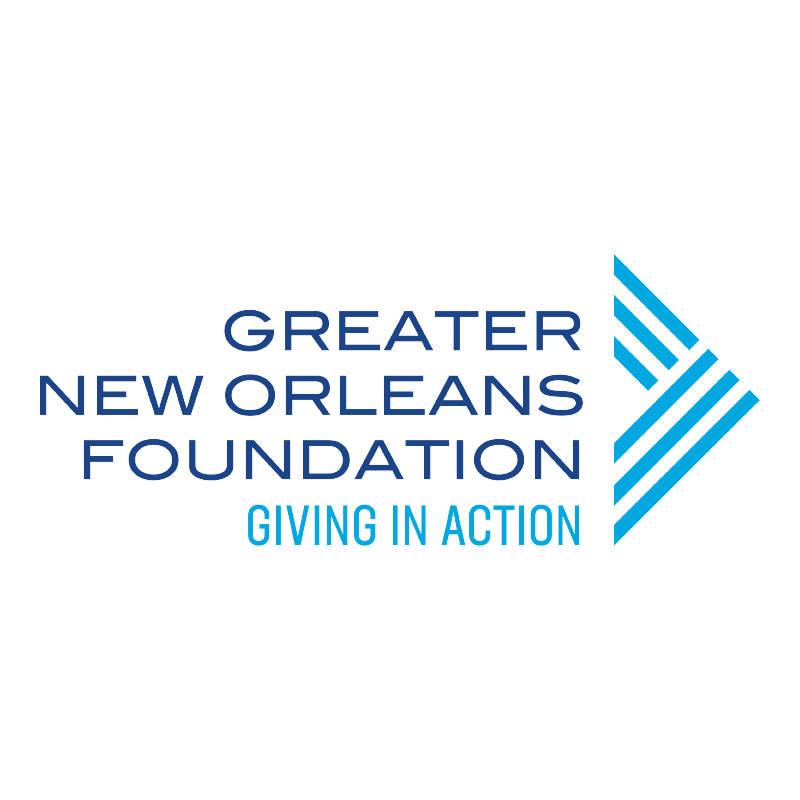This category seeks to protect cultural diversity both within the workplace and also through the cultural economy, recognizing that our arts and culture, and their practitioners, are woven through the fabric of New Orleans’ communities and is what makes New Orleans so exceptional. It seeks to protect, uplift, and sustainably invest in the artistic and cultural traditions of New Orleans, and support freedom of expression for all individuals.
What is your impact in this category? Take the Love Your City Assessment and learn how you can maximize your organization’s impact!
DID YOU KNOW?
New Orleans’ economy is based on tourism since WWII – shifting from shipping.
Many local musicians still count on tipping as a serious part of their income.
New Orleans has produced several African American indigenous art forms including Second Line Parade culture, Mardi Gras Indians and Baby Dolls, as well as the roots of jazz and other beloved music genres.
Arts and Culture can be found in every neighborhood in New Orleans.
OUR CHALLENGE
Ensure that New Orleans cultural practices and practitioners can thrive.
WHAT YOU CAN DO / WHO CAN HELP
Hire local musicians and visual artists when possible.
Tip when you go see live music. (MACCNO good visitors guide).
Patronize locally owned businesses.
Nurture culture in your own neighborhood.
Donate to organizations that provide support for the cultural community:
Learn about local history and culture by visiting such institutions as:
WHAT DO POLITICAL LEADERS NEED TO KNOW ABOUT YOUR SECTOR?
Culture is crucial both to New Orleans' economy and identity
Cultural practitioners are incredibly vulnerable for a number of interlocking reasons including poverty, the economic under-valuing of cultural work, racial dynamics and more
Culture is particularly poorly treated in legal and policy settings, at best treated as an afterthought and more often as a nuisance to be managed rather than an asset to nurture
Small businesses play a positive role in our society, employing our citizens, supporting local causes and creating community gathering places.
State and local governments have the opportunity at this pivotal juncture to restructure markets so they work more effectively, more equitably, and support the hard work already invested into local markets by entrepreneurs, innovators and small and micro business owners.
Not only is a sustainable economy compatible with shared prosperity, environmental protection and regeneration, and social justice - it is essential from both a moral and pragmatic standpoint that we restructure our economy to achieve this balance.
WHAT ARE YOUR LOCAL POLICY RECOMMENDATIONS?
Specific recommendations vary based on the context, but are always based on the driving principle that the language of our laws and policies needs to reflect the lip service that gets paid to our cultural practices and practitioners, and that culture needs to be fostered, nurtured, protected and centered in policy discussions.
The City of New Orleans’ procurement process could be restructured to prioritize local business vendors for PPE, office supplies and other goods over national chains (best practice: Phoenix, AZ).
Assistance with expanding e-commerce markets for local small and micro businesses could come with the establishment of networked e-commerce which operates responsive to consumers using businesses’ shared inventory data. (local resources: founders of locally.com and Nolavate Black)
Public information campaign to help residents appreciate the micro-lending and other local investment opportunities.
Building on the success of StayLocal’s online, searchable directory of mapped local businesses, explore ways to expand the existing directory to include thousands of micro-businesses, expand the digital footprint of each business.
Property tax incentive to owners of mixed use buildings with ground floor units on commercial corridors to retain long term tenants when those tenants are locally owned, independent businesses.
WHAT ARE YOUR STATE POLICY RECOMMENDATIONS?
Provide investment tax credits to institutions, businesses, and residents that invest in or donate to CDFIs.
Move surplus deposits (i.e., transfer payments from the federal government and tax collections, prior to expenditure) to local banks and credit unions (best practice: Bank of North Dakota).
Creation of investment policy, likely to require legislative reform when necessary, that city moves city and state accounts to local banks and credit unions.
WHAT ARE YOUR FEDERAL POLICY RECOMMENDATIONS?
Requiring companies that do business in a state to report their worldwide profits and then apportioning tax liability on the percentage of sales earned in that state would raise more than $14 billion for states across the country, and would reduce the unfair tax burden on domestic-only companies.
Support cooperatives already connecting rural residents to high quality Internet access.
Regulate and break up monopolies.
POWERED BY
Category Leader
Hannah Kreiger-Benson
Program Coordinator
The Music and Culture Coalition of New Orleans
www.maccno.com
programs@maccno.com






